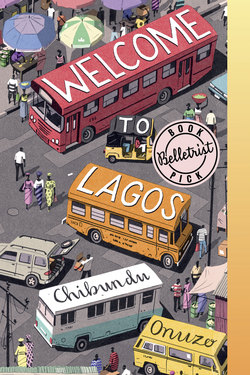Читать книгу Welcome to Lagos - Chibundu Onuzo - Страница 9
На сайте Литреса книга снята с продажи.
Оглавление2
THE NEWS THAT TWO sentries had been killed was all over the base the next morning. No one in the ranks saw the bodies before they were buried. Breakfast was stale bread with a watery egg stew, eaten with murmuring throughout the dining hall. After breakfast Colonel Benatari assembled the entire base of almost a thousand soldiers on the dirt expanse that served as their parade ground. The colonel was dressed in full regalia, his hand resting on the hilt of a sword. “It is with great sadness that I report the loss of two brave soldiers. We have been gentle with these people because our superiors have told us to promote national unity. They don’t know what is on ground. The Niger Delta is not a place for ideas. I am from here and I know. You tell an Ijaw man about nation building, all he wants to know is what’s for lunch. These are stomach people and it is time to show them we are muscle people. This evening, we attack!”
The colonel’s wildness seemed barely constrained by his starched uniform. Hair spilled out of his collar and cuffs, climbing down to his knuckles and creeping up his Adam’s apple. Chike sensed that if permitted, the colonel would string the scalps of his enemies into a belt and do away with the leather-and-steel contraption that encircled his waist.
No work was given that day. No marching in the afternoon. Double lunch rations. A smoggy expectation hung over the base. Tina was not in the canteen today. Was she a spy, Chike wondered.
CHIKE’S PLATOON WAS CHOSEN. His men were skittish in the back of the van, knees knocking, starting at every sound in the bush. They all wore charms, amulets, and talismans strung around their necks to ward off evil. Their battalion had been cursed so many times. After each execution, the victim’s mother or sister, or aunt or grandmother or wife, would call on native deities to devour them, half-fish, half-man gods to swallow them up. The land was against them, the water, the air, conspiring to smother and drown and bury them alive.
At any moment they could be ambushed. There was no tarred road, just this narrow path with the bush pressing close, leaves and branches swishing against the bodies of the vans. A hundred men in total snaked quietly to the village, the line of vans rolling forward slowly, headlights dimmed with strips of dark paper. At night, the Delta was as it had been centuries ago, black and seething with spirits.
The moon appeared, a full white disk spilling light on the thatched mud huts and squat concrete bungalows that lined the village entrance. The colonel was in the first van. He was always first in an attack. Chike’s men said bullets bent when they touched Colonel Benatari, that metal bounced off skin made impenetrable by juju. He saw the colonel now, walking into the village with his indestructible body, a compact black shape with a line of soldiers following him. They flung petrol on every roof they passed, quick and efficient in their movements.
The first hut bloomed into flame, and the next and the next, a garden of orange flowers. Was it the heat that drew the villagers from their huts or the smell of smoke? Village men were dashing into houses and rescuing the bric-a-brac of their lives, boxes, chairs, clothes bundled and dumped by the feet of their families. Women were carrying babies and smacking children that strayed too far from the family group. Chike and his platoon stood by their vans, watching this scene and waiting for their orders.
“When you hear the gunfire on that side, start shooting. Between us, these murderers will be destroyed.”
The voice belonged to Major Waziri, a thin, pallid man with a loud voice.
“And what if we refuse?” Chike asked.
“Who said that? Anyone who refuses will be shot.”
The villagers’ panic was giving way to common sense. Some were still blindly surging into their homes and emerging with items that would be useless without a roof over their heads: bedsteads and pots and kerosene stoves. But most were organizing themselves into firefighting units. Buckets of water appeared, thrown wildly and then with precision on the largest part of the flames. The humid air was on their side. One house was doused and another, then another. The women joined in. Even the children. They were winning when Colonel Benatari opened fire.
Chike had seen it enough times, civilians, at the sound of gunfire, dispersing like light spreading from a source. Mothers forgot children, husbands left wives, the old were pushed down and trampled.
“Fire!” Major Waziri said.
For a moment, there was silence. Only Colonel Benatari and his contingent were shooting. This is a mutiny, Chike thought. Unplanned and unconcerted, they had all decided to revolt. Then the first gun stuttered into life and the others found their voice.
“Let’s go now before we take part in this,” Chike said.
The men of his platoon turned when he spoke, fingers relaxing from triggers. Chike did not know the words that would make them drop their guns. Perhaps if he had led them, really led them instead of only giving orders, they would have followed him.
“Oya make we go,” Yẹmi said, “I don tire for this their army.”
